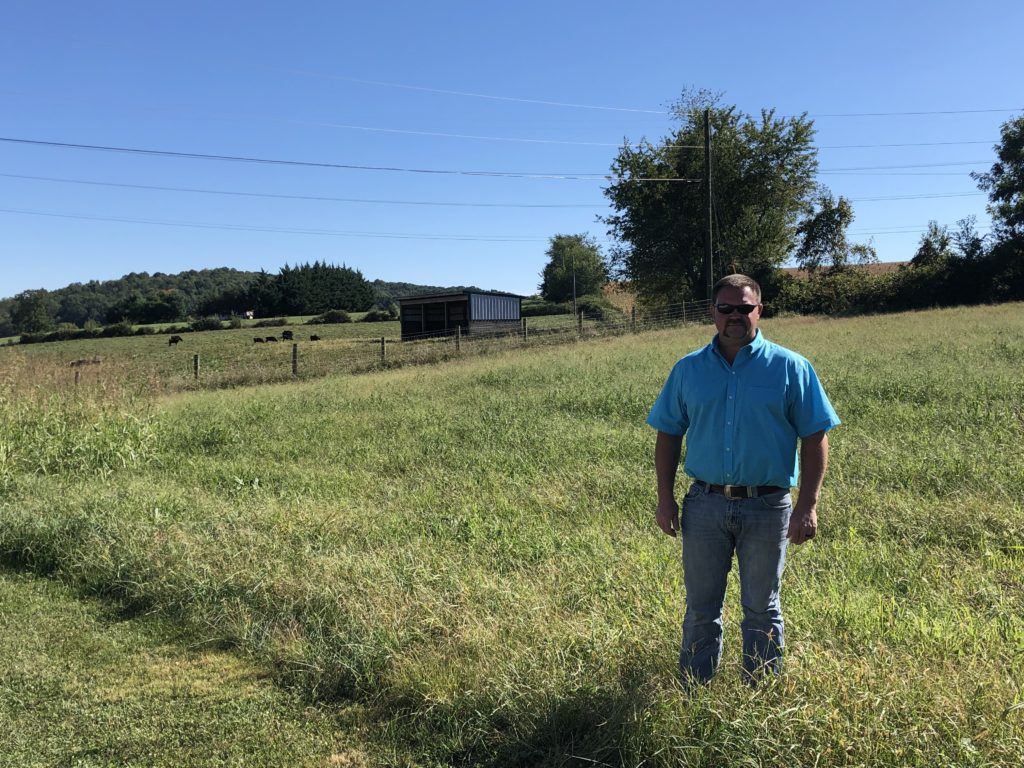Staunton – From his uncle to his father, Olen Swisher has continued a family tradition by keeping the farm in the family. A retired dairy farmer in Staunton, Virginia, he is focused on keeping his beef cow calf operation productive and profitable to one day pass down to his children.
To support his livestock, Swisher grows sileage and sorghum hay. For 10 years, Swisher has participated in the Virginia’s Biosolids program. While he has seen other technologies and developments, he credits his participation in this program to sustaining the farm and he is grateful.
Sure neighbors may be curious at first, but as they talk with him, it has been his experience that they too have become interested in the benefits of biosolids.
Why does he appreciate biosolids – the cost savings are critical as well as the benefits. Compared to other products, he not only saves money, he also fully benefits from the time-release through different seasons – letting his biosolids work a little longer, especially in dry weather.
Biosolids – both Class B and exceptional quality (Class A) have been used successfully used in commercial row crop, pasture and hay land agriculture for years. Research has shown that the use of biosolids increases yields and quality of crops by supplying essential plant nutrients, improving soil properties, and inducing biostimulant benefits under stressful conditions, such as drought; see Biosolids Use for Row Crop, Forage, and Hay Lands.
“Really – I couldn’t do what I do today without the program,” Swisher says.
His farm may be smaller than others, but the cost per acre is just as high as a larger farm; any cost-efficient practice which benefits the land, his cows, and is productive allows him to continue to sustain his family farm and carry his family tradition down the road.
He recently took a job with Houff. He smiles as he speaks about the learning experience he has had as an employee – learning more about how the product is generated as part of the extensive process of treating water; how its transported and the challenges of scheduling.
“Of course,” he says, “weather is really the only challenge when it comes to scheduling; you can’t control the weather!”
